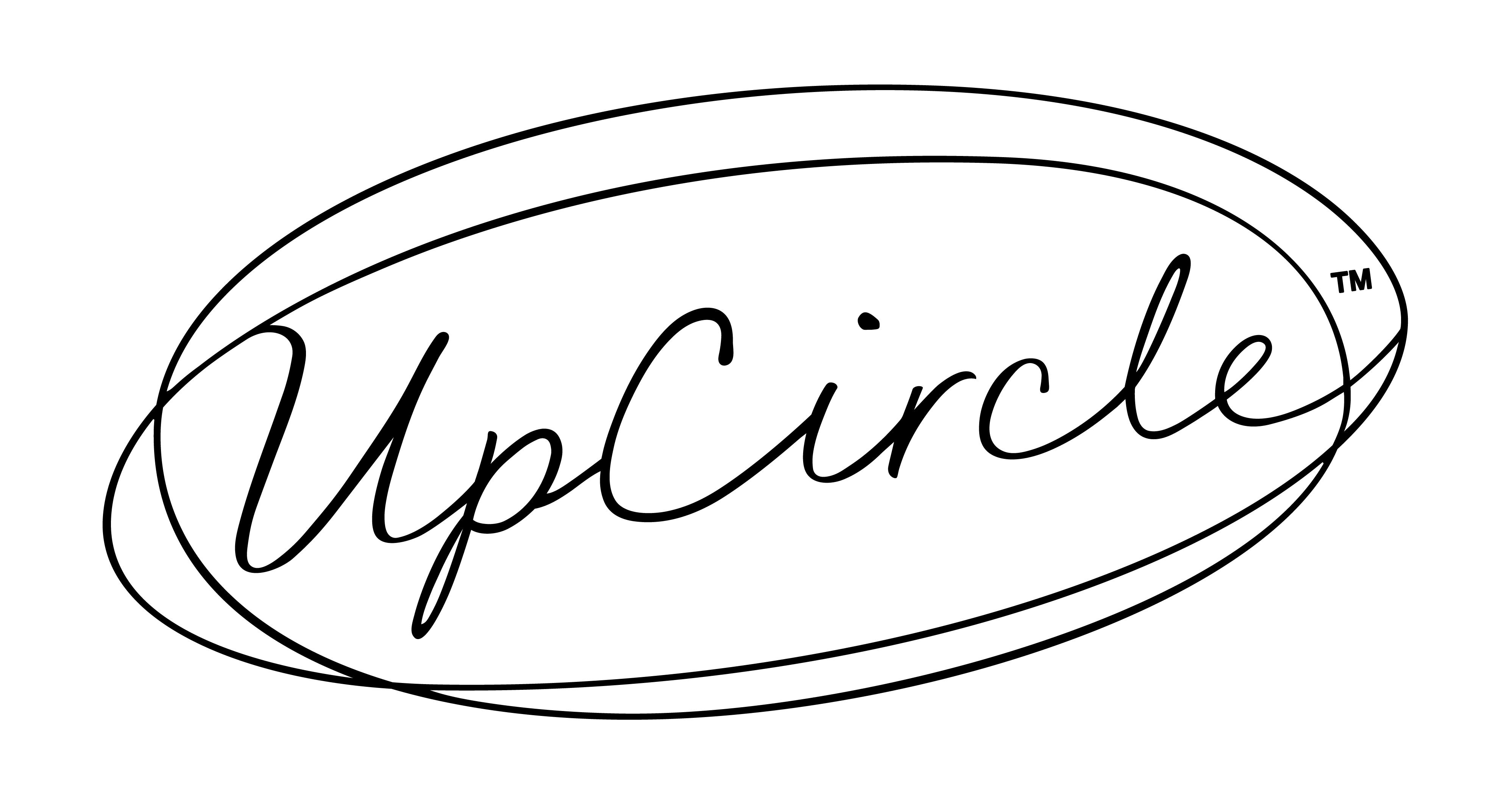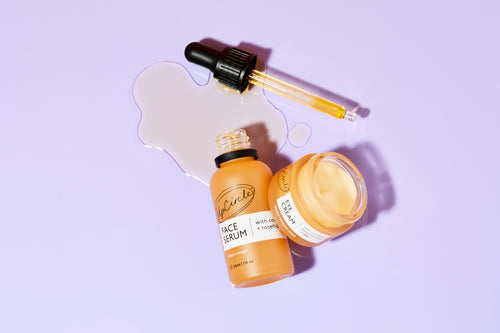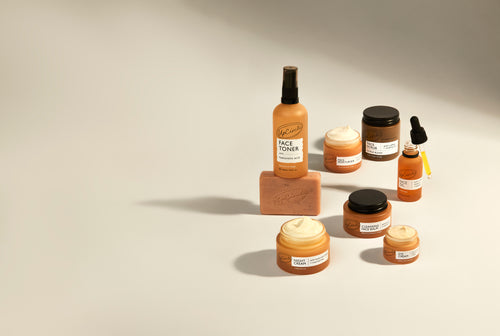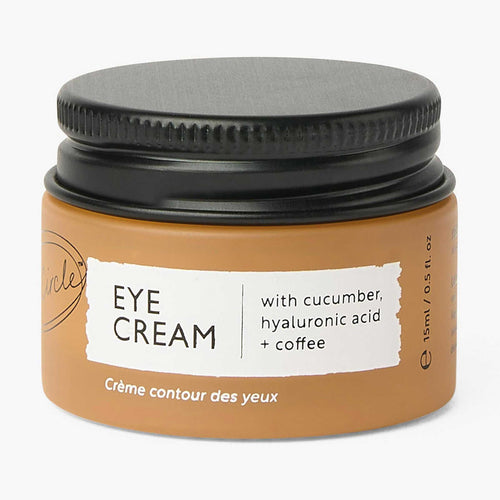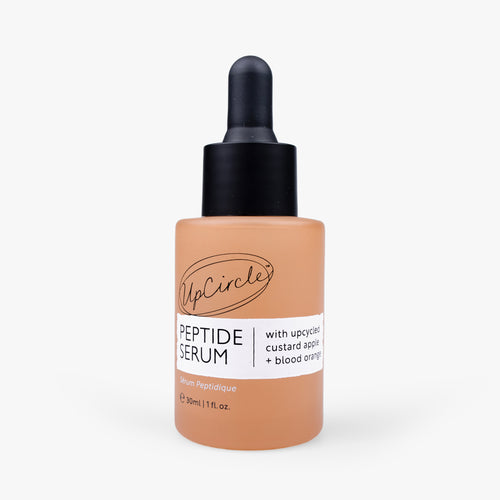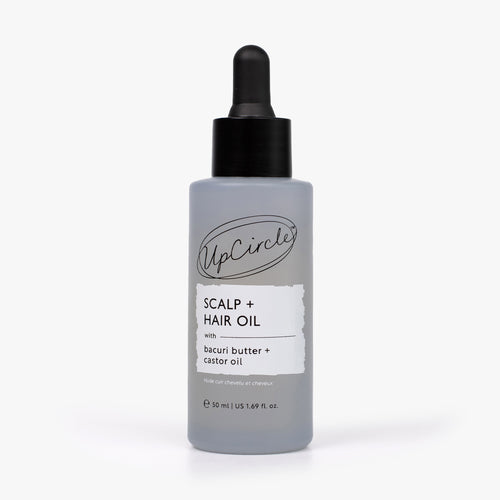Face Oils. 5 years ago you might not have heard of them, whereas now – when talking skincare – it’s hard to hear about anything else. If you’re unsure what all this face oil malarkey is about, don’t worry, you’re not alone. With so many skincare products out there, claiming to fix this and smooth out that, it can be confusing to know what they’re all for and which ones might work for you. At UpCircle we believe skincare should be simple. So join us as we unravel the jargon into layman’s terms.
What is face oil?
Face Oils are unsung skincare superheroes. The wonder child of a moisturiser and essential oils, they pack a powerful punch, delivering hydrating and nutrient-rich ingredients directly to your skin. But how are they different from normal moisturisers?
Think of it like the difference between cocktails and liqueurs. These often start with the same ingredients, but to make the cocktail, the liqueur is diluted down and mixed with other ingredients. This is either to add flavour or sometimes simply to make the cocktails look cool.
Moisturisers often contain the same nourishing components as serums or facial oils. But they are often padded out using thickeners, preservatives and other toxic ingredients to make them smell nicer, easier to apply or create a short-lived illusion that they are working. A bit like the pointless half of a passionfruit balanced precariously on top of your Pornstar Martini –– it doesn’t add anything to the cocktail in terms of taste, but makes it look better on your Instagram feed. In comparison to moisturisers, oils (like liqueurs) are more concentrated and tend to have fewer ingredients. And just like cocktails, when drinking straight liquor, you need less of it to feel its effect. Genuine face oils do what they say on the tin, pure and simple, without any unnecessary ingredients.
How do they work?
Cue a mini biology lesson...
Oils and moisturisers reach different layers of your skin. Your skin has three layers to it – there’s the epidermis (top layer), the dermis (middle layer) and the hypodermis (bottom layer). As you go deeper into your skin, your skin cells become more water-based. The epidermis – the uppermost layer of the epidermis in particular – is mostly oil based, forming a waterproof barrier to lock in hydration and keep out bacteria, allergens and bad vibes. Stay with us. Moisturisers are water and oil based and are made up of large molecules in comparison to face oils. This means that they can only get so far as your epidermis, which is fantastic for locking in the hydration that you already have in your skin. But this is not so great for getting moisture and nourishment to the layers of your skin that actually need it.
Face Oils can be both water-based or oil-based. As water-based serums are made up of smaller molecules than moisturisers, they can penetrate deeper into your skin, delivering a very high concentration of active ingredients to the water-based layers of your skin. These nourishing ingredients include some well-known skin-friends – the likes of antioxidants, vitamins and essential fatty acids – which work to supercharge your skin with intense moisture.
Oils work slightly differently - being made up of thicker molecules, they work through occlusion - the notion of locking in hydration by forming a protective seal over the skin. That's why we recommend using our Organic Face Oil with Coffee Extract after a moisturiser.
So, if you skimmed over that little lesson, this is what you need to take away from it: Face Oils deliver what your skin needs, to exactly where it needs it.
Why you need one?
Because face oils contain such a high concentration of active ingredients, they are more effective than diluted moisturisers. And as we mentioned earlier, although you may be alarmed by the price tags, you’ll need considerably less with each use. So actually, oils are likely to be more cost-effective. Plus, because they aren’t filled with thickeners, you’re paying to have a purer form of the moisturising product. One to two drops of oil is enough for each application, meaning that the seemingly small bottles should last you several months. With oils, less is more.
See them as the true workhorses of your skincare regime. By using an oil you are able to intensify the strength of your skin care regime to fully hydrate your skin, as well as treat specific skin care needs such as dry skin, hyperpigmentation or wrinkles. A face oil will give your skin the hydrating nutrients that it needs, which can then be kept in by your moisturiser on top.
How to apply face oil correctly
If you’re cleansing, toning and moisturising regularly and not seeing any serious improvement to your skin, a facial oil could be what's missing from your routine. A face oil should be applied to clean skin. With a water-based serum, you should apply after you’ve cleansed and removed any residual dirt with toner but before your moisturiser.
With our Organic Face Oil, apply one to two drops onto your fingers and massage gently into your skin after your moisturiser. Make sure to do so only once your skin has had a chance to soak in all the nurturing goodness of the moisturiser.

Au Naturel
If you ask us, natural skincare wins every single time – there’s no doubt about it. While some oils can contain many hidden, not-so-nice components that can aggravate, damage or simply sit on your skin, natural face oils stay clear of such unpleasant ingredients. Look for oils that incorporate natural ingredients to boost collagen production and keep your skin firm and nourished. Our Organic Face Oil contains sea buckthorn, rosehip, jojoba, raspberry seed and coffee oils. Talk about getting your money’s worth (particularly at our oil’s teeny tiny price point!) Sounds great, right? But because we believe in being honest and transparent about what skin care ingredients really do, we wanted to give you a quick rundown on what all of these oils actually do:
- Sea buckthorn oil comes from the shrub sea buckthorn (surprising that) and it’s an impressive oil on the hydration front. It’s one of the very few oils that packs in almost as much of a nutritional punch as essential fatty acids, with a healthy serving of Vitamins A, C, E and B too.
- Rosehip oil,harvested from the seeds of rose bushes, is jammed with flawless skin essentials like anti-inflammatory fatty acids and vitamins A and C, that help to treat signs of ageing and pigmentation.
- Jojoba oil adds protection from outside aggressors, such as bacteria, fungi and pollutants, by forming a protective barrier to seal in moisture.
- Then there’s raspberry seed oil – this luxurious oil not only sounds delicious, but is certainly a significant player on the skincare game court. Raspberry seed oil is both anti-inflammatory because of its high content of alpha-linolenic acid, and also high in skin-friendly antioxidants, such good ol’ Vitamin E and ellagic acid, which reduces the destruction of collagen.
If you’re up for trying out the wonder powers of an oil then look no further than our Organic Face Oil. It’s 100% natural and certified organic, so you can massage all that goodness in without fear of hidden nasties. Plus, we’ve worked hard to keep our little baby at a reasonable price point – because, let’s be honest, no one likes shelling out £70 for a bottle smaller than the palm of your hand.
